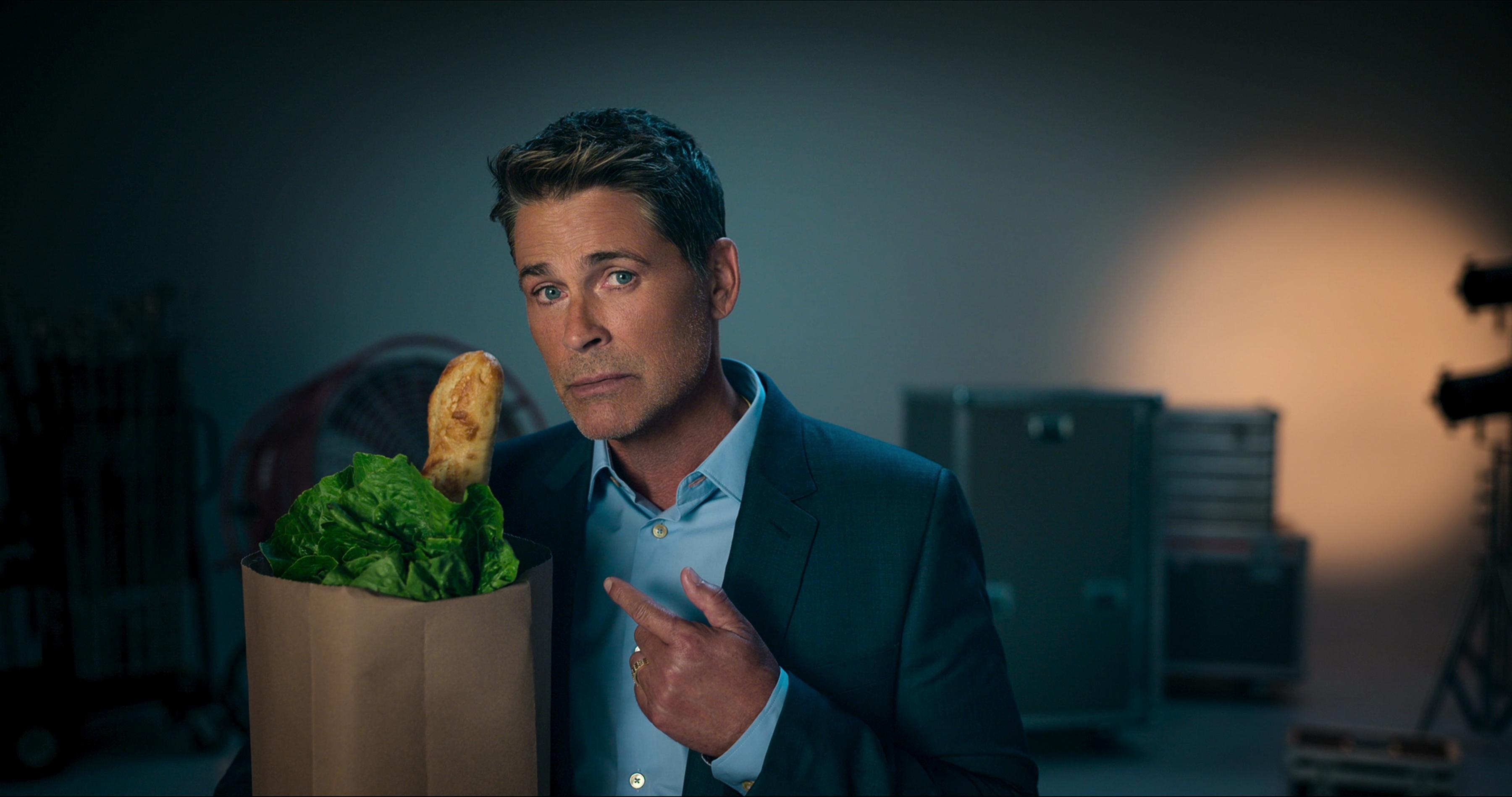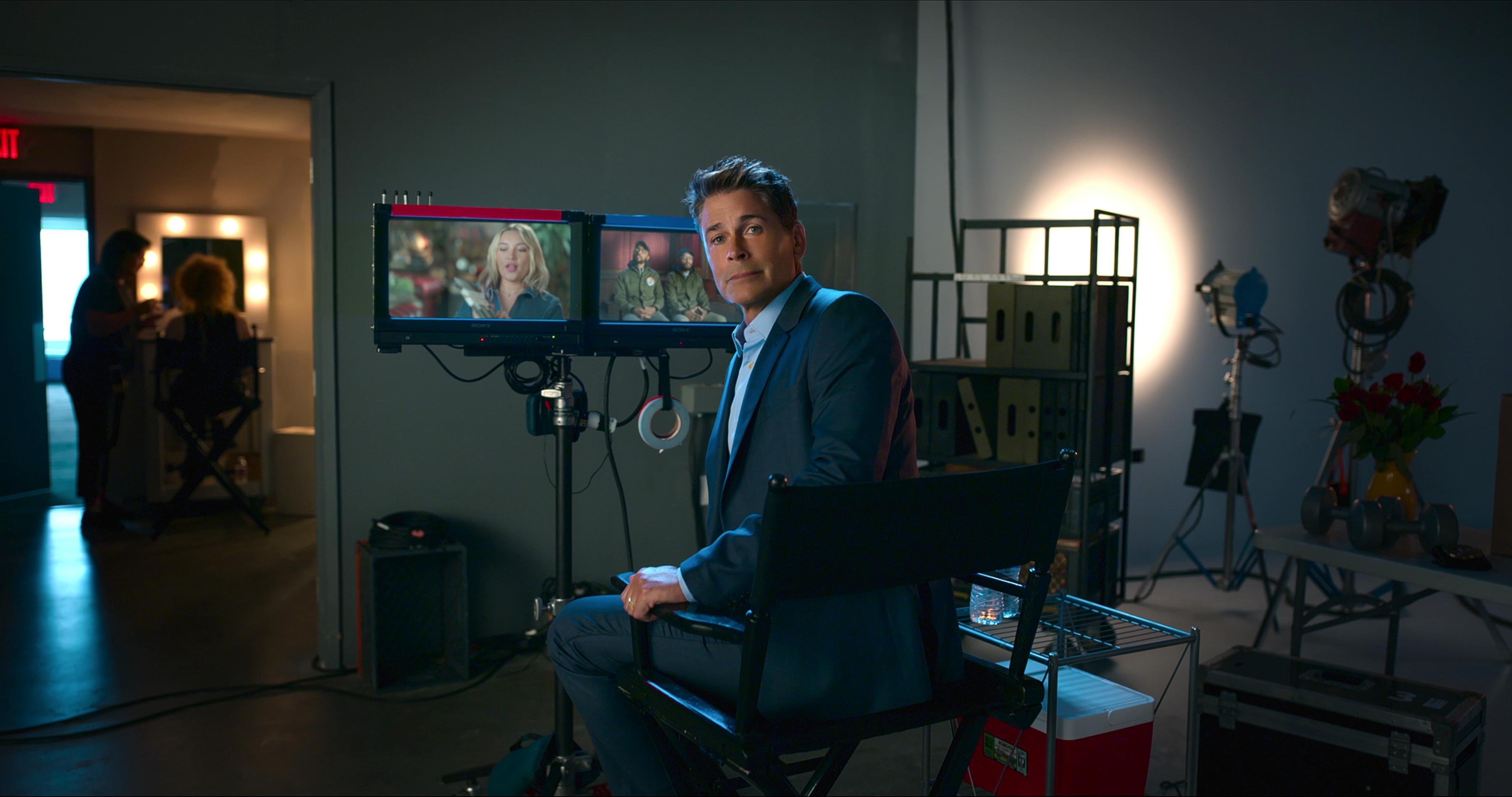'Attack of the Hollywood Clichés!' Review: Engaging Albeit Occasionally Shallow
Published Sept. 28 2021, 4:00 a.m. ET

From the woman running for her life in five-inch heels to the character who is so shocked he spits out his drink, Attack of the Hollywood Clichés! dives into many cinematic tropes — some benign, others not so much.
Though the Netflix documentary, which clocks in at just under an hour, often fails to comprehensively examine the depths of its subject matter, Rob Lowe makes for an engaging host among a group of surprising “experts” (actors, screenwriters, critics, and more).
Rob's tongue-in-cheek hosting style would be cringeworthy in someone else’s hands. The man puts a finger in his mouth when introducing the famous “meet-cute,” but the move works because of the actor’s undying reputation as a sex symbol among Gen-Xers. It’s as if he’s mocking his own clichéd celebrity identity while poking fun at the very tropes Hollywood has employed for generations.

Attack of the Hollywood Clichés
Our Rating
Attack of the Hollywood Clichés explores all the tropes you want it to — sometimes to its disadvantage.
Whether he's referencing the meet-cute (the serendipitous way soulmates meet in rom-coms like Notting Hill or Maid in Manhattan) or discussing the maverick cop who cares only about his gun and badge, Rob's flippant delivery keeps the film light and engaging. He transitions viewers from one trope to the next, supporting the film’s quick shifts between the many clichés it aims to tackle.
And, in striving to tackle all the clichés viewers will expect to see referenced, Attack of the Hollywood Clichés! sometimes fails to provide more insight into the origins and social consequences of the more pernicious movie tropes.
While some cinematic clichés are rather harmless — like the spit-take that suggests incomparable surprise, or the bread sticking out of a grocery bag that intimates a character's relatable life — others are more damaging. For example, why is a man stalking a woman an acceptable way to court (Twilight, The Graduate, There’s Something About Mary), but flip the stalker’s gender, and the woman is an unstable and violent source of concern (take Glenn Close in Fatal Attraction)?
Let us also not forget Hollywood’s tendency toward the white savior or the "magical Negro." Both tropes operate to free white characters from guilt and reduce Black characters to nothing more than narrative devices in service of the white characters’ journeys. It is when introducing these clichés that the Attack of the Hollywood Clichés! could benefit from more social reflection and analysis into how these cinematic tendencies have shifted across time but still retain the same thematic underpinnings.
While the Netflix film scratches the surface of these deeper issues, it often feels a bit scant. In attempting to cover as many Tinseltown clichés as possible, the film overlooks some warranted analysis, leaving viewers wanting more research to defend the introduction of these clichés in the first place.
The documentary does succeed in addressing many a cliché and noting the movies across decades that have succeeded in large part because of them. Plus, with Freddy Kreuger actor Robert Englund discussing horror tropes, and Andie MacDowell from Four Weddings and a Funeral commenting on rom-com inaccuracies, Attack of the Hollywood Clichés! is a fun ride.
If only the special were split into two parts, giving each trope a bit more time in the spotlight, that might satisfy Netflix viewers who are left wanting more.